News
Bill seeking 5-year mandatory practice in Nigeria for Nigerian-trained doctors passed 2nd reading
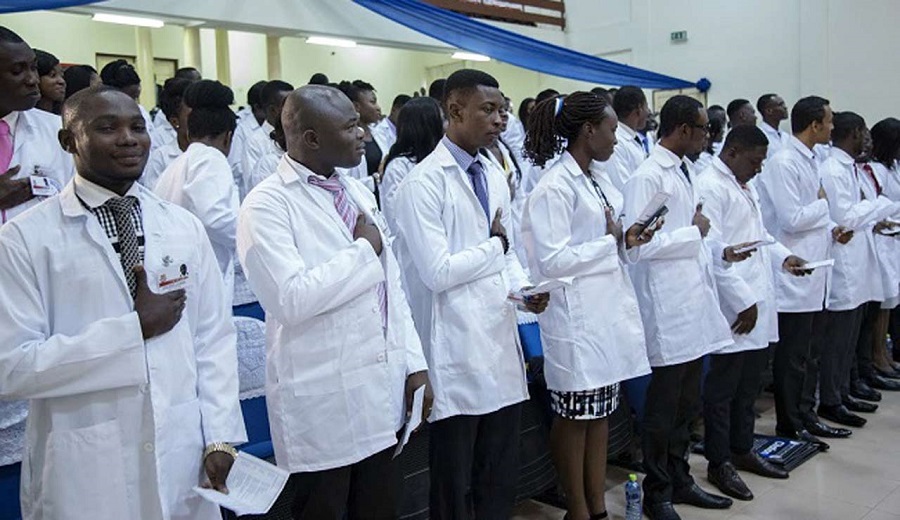
Bill seeking 5-year mandatory practice in Nigeria for Nigerian-trained doctors passed 2nd reading
A bill seeking to mandate Nigerian-trained medical and dental practitioners to practice for a minimum of five years in the country before being granted a full licence has passed second reading at the house of representatives.
Sponsored by Ganiyu Johnson, an All Progressives Congress lawmaker from Lagos, the bill seeks to amend the Medical and Dental Practitioners Act 2004, to address the brain drain in the Nigerian health sector.
If passed into law, medical and dental practitioners trained in the country will have to practice for at least five years before they are granted a full licence.
There have been concerns in recent times over the relocation of many healthcare workers in Nigeria to foreign countries — a development that has retrograded the state of the country’s health sector.
In August 2022, the Nigerian Medical Association said a total collapse of the health sector is imminent if urgent steps are not taken to address the brain drain in the sector.
The association called for an emergency solution to the issue in the health sector, adding that with the trend of medical doctors leaving the country, there may be a need to hire doctors from foreign countries in the future.
READ ALSO:
- Financial resources, grassroots support aided Tinubu victory – American observer
- Police arrest 2 robbers, recover stolen bus in Ekiti
- Interim government, mischievous, unconstitutional –DHQ
Leading the debate on the bill during plenary, on Thursday, Johnson said the bill aims to “make quality health services available to Nigerians.”
Johnson said it was only fair for medical doctors, who enjoyed taxpayer subsidies on their training, to give back to society.
He said by working for a minimum number of years before leaving Nigeria to practice abroad, the country would have benefited from their skills.
Contributing to the debate, Uzoma Nkem-Abonta (PDP-Abia), opposed the bill on the premise that it will “tie down” doctors in Nigeria for five years before they can seek employment in a foreign country.
Mark Gbillah, a lawmaker from Benue, said the bill should be reworked because it proposes clauses that would infringe on the fundamental human rights of Nigerian-trained doctors.
Gbillah said, “A person in such a critical field as medicine — how would you give somebody a temporary licence? You would need a licence to be certified to practice.
“Do we try to restrict these people and infringe on their fundamental human rights or apportion more resources to the medical profession?”
In his remarks, speaker of the house, Femi Gbajabiamila, said fundamental human right is not absolute and that freedom can be restricted in some situations.
“Let me clear the issue of fundamental human rights that have been raised. If you go to section 45(1) of the constitution, it allows you to deviate from your fundamental human right under certain conditions.
“One of these conditions concerns public health. So, if the government feels to safeguard public health, then we have not violated anybody’s human rights,” the speaker said.
The lawmakers voted in favour of the bill when it was put to a voice vote.
Bill seeking 5-year mandatory practice in Nigeria for Nigerian-trained doctors passed 2nd reading
News
Why governors’ forum is silent on Rivers emergency, by DG
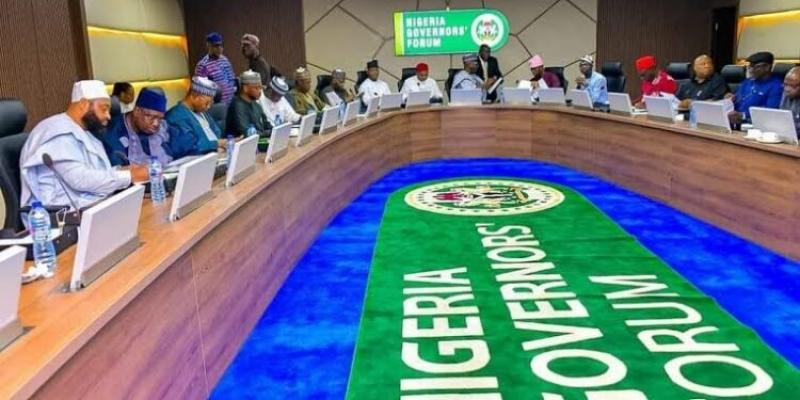
Why governors’ forum is silent on Rivers emergency, by DG
The Nigeria Governors’ Forum (NGF) yesterday attributed its neutral position on the recent declaration of a state of emergency in Rivers State to the need to steer clear of taking positions that may alienate members with varying political interests.
Taking positions on contentious partisan issues, the NGF said, would not augur well for it, especially in view of its past experience in fundamental division.
Notwithstanding, the declaration of the state of emergency by President Bola Tinubu yesterday generated more kudos and knocks from across the country.
Special Adviser to the President on Senate Matters, Senator Basheer Lado, said the action of the president was meant to ensure protection of lives and restoration of law and order in the state, while the President’s Special Adviser on Media and Public Communications, Sunday Dare, said his principal was required to “avert needless harm and destruction .”
National Publicity Secretary of the ruling All Progressives Congress (APC), Felix Morka, said Tinubu, by his action, cleared what had manifested as a constitutional crisis in Rivers state.
But former President Goodluck Jonathan saw it from a different perspective.
READ ALSO:
- Senate didn’t get 2\3 majority for Tinubu emergency rule in Rivers –Tambuwal
- FG destroys another 200 containers of expired drugs
- Rivers court bars woman from answering ex-husband’s name
He described “abuse of office and power by the three arms of government in the country“ as a dent on Nigeria’s image.
The NGF, in a statement by its Director General Abdulateef Shittu, said it is essentially “an umbrella body for sub-national governments to promote unified policy positions and collaborate with relevant stakeholders in pursuit of sustainable socio-economic growth and the well-being of the people.”
It added: “As a technical and policy hub comprising governors elected on different platforms, the body elects to steer clear of taking positions that may alienate members with varying political interests.
“In whatever language it is written, taking positions on contentious partisan issues would mean a poor sense of history — just a few years after the forum survived a fundamental division following political differences among its members.
“Regardless, the Forum is reputed for its bold positions on governance and general policy matters of profound consequences, such as wages, taxes, education and universal healthcare, among others.”
It asked for “the understanding of the public and the media, confident that appropriate platforms and crisis management mechanisms would take care of any such issues.”
Why governors’ forum is silent on Rivers emergency, by DG
News
Rivers: Tinubu acted to save state, economy, says Karimi
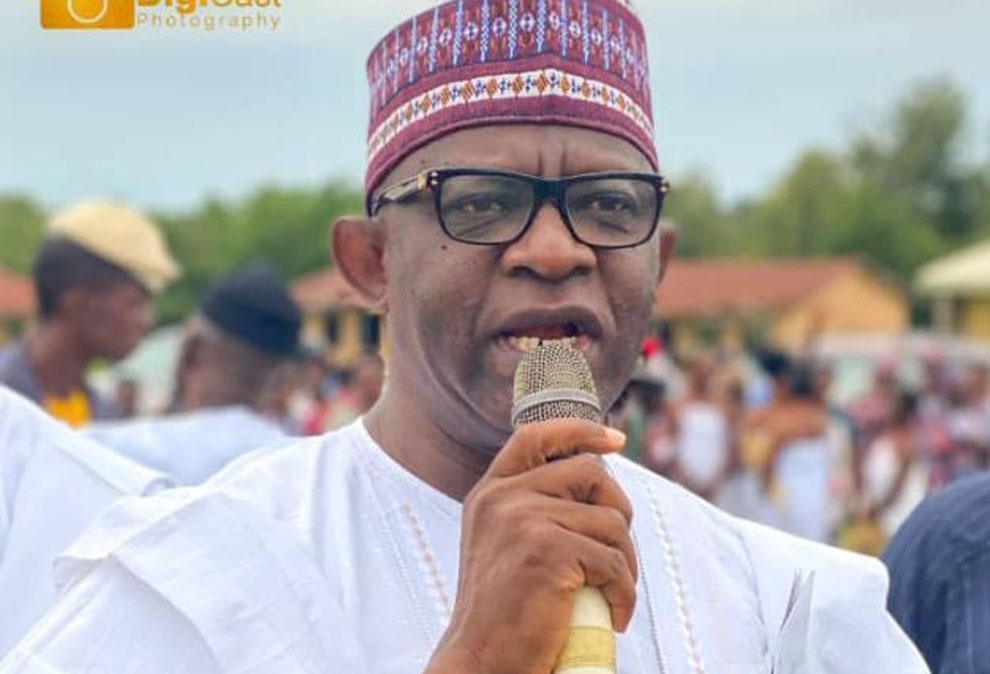
Rivers: Tinubu acted to save state, economy, says Karimi
Chairman of the Senate Services Sunday Karimi has hailed President Bola Tinubu for the decision to declare a state of emergency in Rivers State.
He told reporters on Friday in Abuja that the President acted in the best interest of the State and Nigeria, having taken his decision in compliance with the Constitution.
“No President or government worth a name, will fold its arms and watch a political situation deteriorate to what we saw unfolding in Rivers State.
“We saw that bombing of pipelines had begun, and the security situation was getting worse with the tension everywhere”, Karimi stated.
Karimi, who represents Kogi-West on the ticket of the All Progressives Congress (APC), recalled the “fatherly role” Tinubu had played in the crisis since 2023 in a bid to get the Minister of the Federal Capital Territory (FCT), Nyesom Wike, and suspended Governor Siminalayi Fubara to reach an understanding, to no avail.
He explained: “We were all here in 2023 when Mr President called that truce meeting at the Aso Rock Villa. There was the eight-point agenda for settlement reached between the factions.
“When Nigerians expected that progress should be made to achieve peace, things started deteriorating considerably to a point where the governor demolished the House of Assembly building and administered the state with only three legislators.”
READ ALSO:
- Oluwo accuses Ooni of plotting to dethrone him
- Natasha: Court blocks recall attempt, stops INEC
- US ends legal status for 500,000 immigrants
Karimi observed that with the recent judgment of the Supreme Court, which gave the upper hand to the 27 lawmakers loyal to the camp of the FCT Minister, matters merely got worse in the State as the lawmakers were set to impeach the Governor.
“What did you expect would be the implications? There would have been more destruction, killings and economic losses for the country.
“With the bombings that had already started, it was a matter of time before the whole state would be engulfed in flames. No responsible President would sit, arms folded, and allow that to happen “ he added.
The senator further argued that it took “painstaking efforts” by the administration to raise daily crude oil production to around 1,800 barrels, noting that Nigeria’s economy was already “witnessing a rebound under the renewed hope projects of the government.”
“Allowing the situation in Rivers to get worse before he would act, wouldn’t have helped the state or Nigeria as a country in any way.
“Mr. President intervened at the right time, and his actions are covered by law,” he said.
Karimi also spoke on the emergency declaration in Borno, Yobe, Adamawa and a couple of other states by former President Goodluck Jonathan without removing the Governors from office or suspending the state assemblies.
According to him, the case with those States was not generated by political crises but rather security concerns.
“So, I will advise those comparing the two scenarios to remember that one was purely about security threats resulting from the insurgency caused by Boko Haram, while that of Rivers is clearly political.
“It was the proper thing to do to suspend the political actors in the two factions to allow for tensions to diffuse. Nigerians should appreciate the President for the action he has taken so far,” he stated.
Sen. Karimi also noted that there was no cause for alarm as the National Assembly had indicated that the emergency rule could be reviewed as soon as there were signs that things could quickly normalise in Rivers State.
Rivers: Tinubu acted to save state, economy, says Karimi
News
Just in: Tinubu swears in Rivers Sole Administrator Ibas

Just in: Tinubu swears in Rivers Sole Administrator Ibok-ete Ibas
President Bola Tinubu has sworn in Vice Vice Admiral Ibok-ete Ibas (Retd.) as the Sole Administrator of Rivers State.
The administrator was sworn in on Wednesday after a short meeting with the President.
Tinubu announced the appointment of the retired naval chief at a nationwide broadcast on Tuesday, when he declared a state of emergency in Rivers State and suspended Governor Siminalayi Fubara, Deputy Governor, Ngozi Odu, and the state House of Assembly members.
The President said his decision was based on Section 305 of the 1999 Constitution, saying he could not continue to watch the political situation in Rivers escalate without taking concrete action.
The suspension of Fubara and other elected representatives has been rejected and condemned by many eminent Nigerians, legal luminaries, groups such as Atiku Abubakar, Peter Obi, Femi Falana, the Labour Party (LP), the Peoples Democratic Party (PDP) and the Nigerian Bar Association.
However, the emergency rule has been praised by the pro-Nyesom Wike Assembly led by Martins Amaewhule, accusing Fubara of contravening the Supreme Court ruling on the political situation in the state.
Ibas was the Chief of Naval Staff from 2015 to 2021.
He is from Cross River State where he had his early education.
The new sole administrator went to the Nigerian Defence Academy in 1979 from where he proceeded to have a successful career in the Navy, rising through the ranks to the very top.
He is a member of the Nigerian Institute of International Affairs (NIIA) and the Nigerian Institute of Management.
President Muhammadu Buhari who appointed him as Chief of Naval Staff conferred him with the National Honour of Commander of the Federal Republic (CFR) in 2022.
-

 metro2 days ago
metro2 days agoCourt refers Ojukwu property case to alternative dispute resolution
-
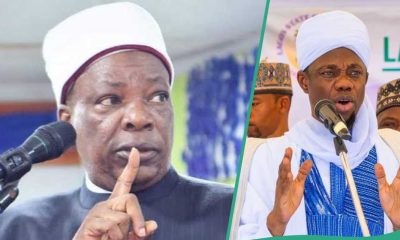
 metro20 hours ago
metro20 hours agoAttack on Mufty of Ilorin: Onikijipa Family Charges Stakeholders to Call Sheikh Habibullahi Al-Ilory to Order
-

 Entertainment3 days ago
Entertainment3 days agoSome ladies in movie industry ready to sleep their way to fame — Jide Kosoko
-

 Health1 day ago
Health1 day agoNigerian doctor pioneers W’Africa first robotic prostate cancer surgery
-

 metro3 days ago
metro3 days agoPresidency blasts Jonathan, Soyinka over comments on emergency rule in Rivers
-
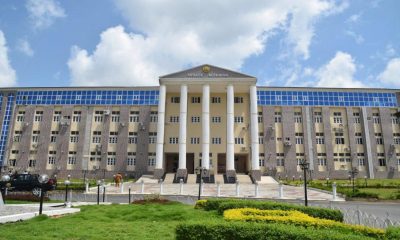
 metro3 days ago
metro3 days agoAdeleke University didn’t suspend Muslims for praying – MSSN
-

 metro2 days ago
metro2 days agoCBN rejects Osun nomination of ex-Aregbesola’s commissioner as bank director
-
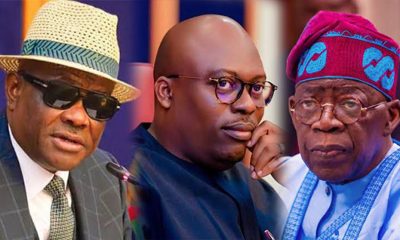
 metro2 days ago
metro2 days agoRivers: Presidency reveals security intelligence leading to emergency rule













